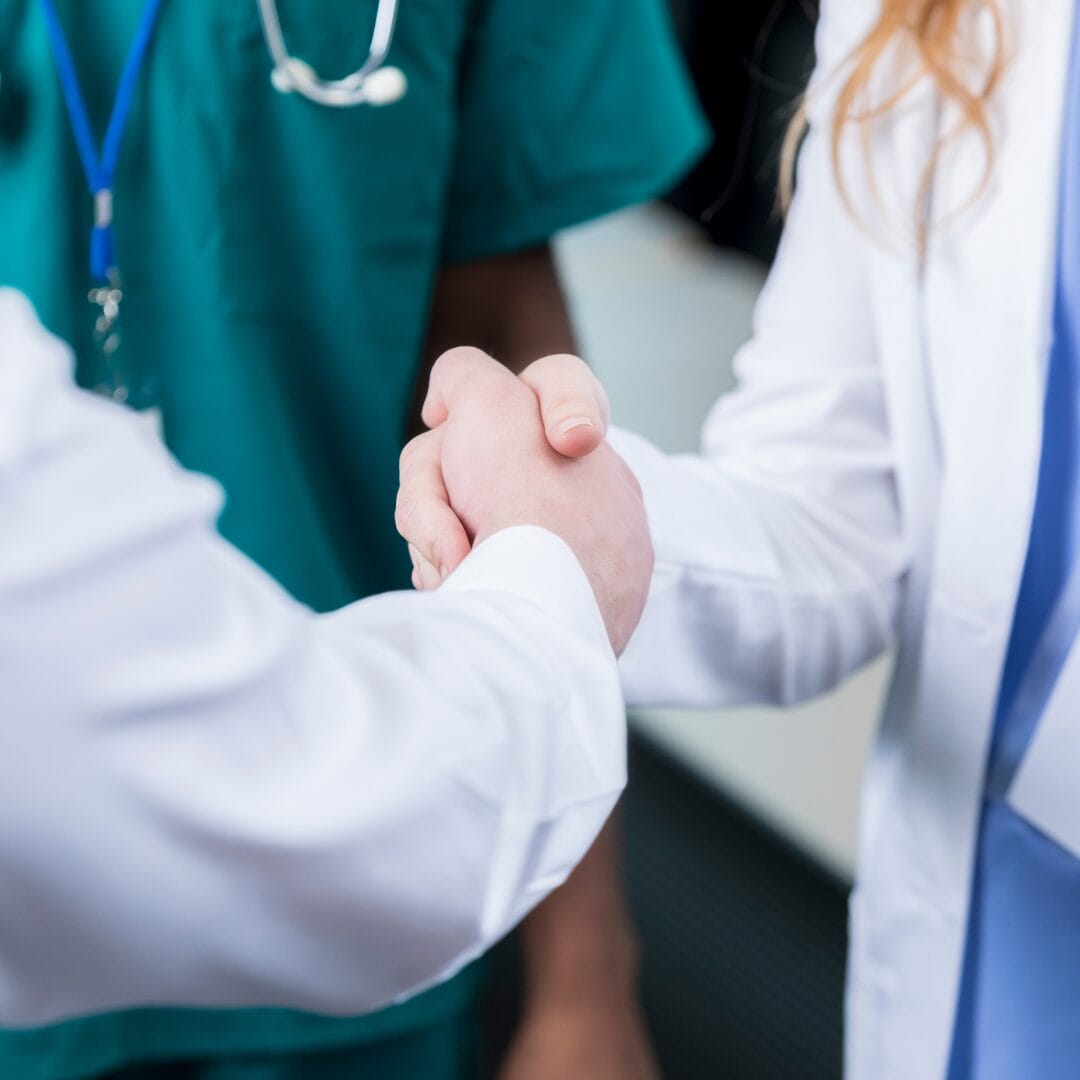
Congratulations! You’ve accepted your first locum tenens assignment and you’re only a few weeks or months away from providing critical healthcare to patients at an understaffed facility. If you’re nervous about what lies ahead, don’t worry—that’s normal. We’re here to help you get your ducks in a row before you set off on your adventure. Not sure what you should bring to the job on your very first day? Here’s a checklist of what to take along for the ride.
Important Documents, Licenses, & Certifications
If you’ve partnered with Barton Associates to find your locum tenens job, our internal teams have already ensured you have the correct licenses and certifications for your job. However, it’s always a good idea to bring a copy of some of these documents along with you on the first day, just in case. Here are some of the important documents you should bring with you:
Medical & DEA License
Before you can practice in a state, you need to be licensed by its medical licensing board. If you didn’t have the relevant state license before you partnered with Barton, our licensing team has already done all the legwork to obtain one for you. Get a copy of this license, and your DEA license, if you have one, and bring it with you on your first day, just in case administrators need to see it or make copies of it themselves.
Certifications
Make sure to pack copies of all of your relevant credentials and certifications, such as your Basic Life Support (BLS) certification, Advanced Cardiovascular Life Support (ACLS) certification, and Pediatric Advanced Life Support (PALS) certification. While your new employer will likely already have these on file, it’s always a good idea to have them on standby just in case they need to see them or make copies for their records.
Personal Identification
Like any other job, it’s important to bring some personal identification on your first day, whether that’s a state driver’s license or your passport. Oftentimes, businesses want copies of these documents in order to prove your identity and that you’re able to work.
Relevant Health Documents
Nowadays, many healthcare facilities require proof that their providers have up-to-date vaccinations against COVID-19 and the influenza virus. Although the facility may not ask for it, bring it along with you just in case.
Bank Information
Although you might not need it, keep your account numbers and routing numbers handy just in case the facility needs it for payroll purposes.
Accessories, Clothes, & Food
Not every facility is the same, so you need to be prepared for anything and everything. This extends to everything from medical supplies, to food in the cafeteria. Here are some other important items to bring on your first day:
Meals & Snacks
One thing’s for sure—you don’t want to go hungry during your very first shift! Make sure to pack a lunch (or breakfast or dinner, depending on when your shift is), so that you won’t be starving if there’s nothing in the cafeteria or vending machines. Also consider packing a snack or two because you never know when you’re going to need a pick-me-up!
Stethoscope
This might seem like an obvious addition to the checklist, but make sure you bring your stethoscope (if you need one) to your job!
Medical Equipment
Every facility is unique in what equipment they have—some have an abundance, while others in more rural regions may have less. If you’re a specialist, and you need specific tools like an otoscope, you may want to consider packing it if you have one.
A Notepad & Pen
Bring along a notepad and pen to your very first day so you can easily write down any questions you have as you encounter them. This will make it easier for you to acclimate yourself in the position, because if your thoughts and concerns are clearly laid out you will have a simpler time getting answers down the road.
Spare Chargers
You don’t want your phone to die in the middle of a shift, so make sure to bring some extra phone chargers (or an external battery) in the event that you need an emergency charge.
Extra Clothes
Bring a sweatshirt (or a jacket, if it’s going to rain/snow) to your first day on the job, because you never know if you’re going to need it. In addition, it may be wise to pack a spare set of scrubs just in case yours gets dirty.
A Positive Attitude
One of the most important things to bring to your very first locum tenens assignment is a genuine willingness to do your best and serve the patients who need your help the most. You got into the healthcare business because you want to help people recover from illness and injury, so this one might be a given, but it’s always good to remind yourself to think positively before the big day in order to stay in the right mindset.
Anything Else You Were Told to Bring
This checklist is non-exhaustive, meaning that we may have missed some things the facility wants you to bring along on the very first day. Read your correspondence with your recruiter and the facility carefully before the big day and ensure that you have everything they ask you to bring.
Find Your Next Locum Tenens Assignment with Barton
Already thinking about your next locum tenens assignment? Haven’t jumped into the locum life but want to take the first step? Reach out to us today and you’ll be connected with one of our experienced recruiters who will work with you to find a job that meets your personal needs and professional goals.



